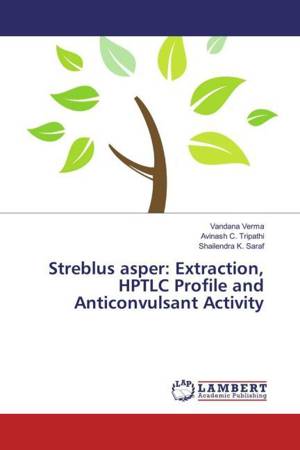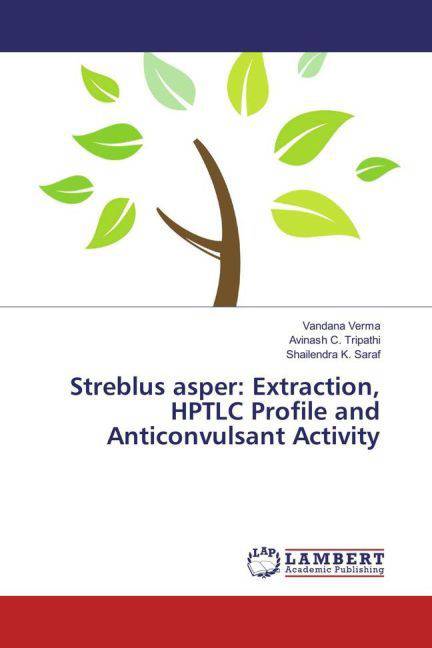
- Afhalen na 1 uur in een winkel met voorraad
- Gratis thuislevering in België vanaf € 30
- Ruim aanbod met 7 miljoen producten
- Afhalen na 1 uur in een winkel met voorraad
- Gratis thuislevering in België vanaf € 30
- Ruim aanbod met 7 miljoen producten
Zoeken
Streblus asper: Extraction, HPTLC Profile and Anticonvulsant Activity
Vandana Verma, Avinash C. Tripathi, Shailendra K. Saraf
Paperback | Engels
€ 49,45
+ 98 punten
Omschrijving
A successful attempt to isolate and characterize the anticonvulsant principle, in particular from the stem bark S. asper, was pursued. The study also validates the ethno-pharmacological potential of S. asper in the treatment of neurological disorders, such as epilepsy and depression. Although, it is evident that S. asper contains several important bioactive compounds, most of the compounds have not been properly evaluated for their biological activities. Hence, isolation of some pure phytopharmaceuticals is important as these can be used as lead molecules or pharmacophores, for synthesizing novel agents having good therapeutic activity. The results obtained from the study reveal a definite role of S. asper crude extract, different fractions and the isolated compound in suppressing seizures, with a noticeable effect in the depressive behavior of the tested mice. It is also clear from the study that per cent inhibition of seizures at variable doses of betulin vary significantly. The acceptable potency and lack of acute neurotoxicity promise the development of some potential neuropharmacological agents, of natural origin from S. asper.
Specificaties
Betrokkenen
- Auteur(s):
- Uitgeverij:
Inhoud
- Aantal bladzijden:
- 104
- Taal:
- Engels
Eigenschappen
- Productcode (EAN):
- 9783659915017
- Uitvoering:
- Paperback
- Afmetingen:
- 150 mm x 220 mm

Alleen bij Standaard Boekhandel
+ 98 punten op je klantenkaart van Standaard Boekhandel
Beoordelingen
We publiceren alleen reviews die voldoen aan de voorwaarden voor reviews. Bekijk onze voorwaarden voor reviews.








